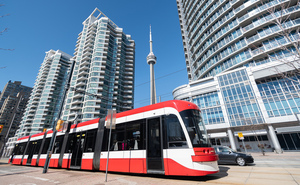The cost of living in Canada – A comprehensive guide for students
الجسم
Getting an education in Canada and experiencing the culture are excellent reasons to move to the country as a student. Canada boasts a welcoming environment for international students and one of the world's top-ranked education systems. Furthermore, studying in Canada offers many opportunities for canadian permanent residency and citizenship. You should, however, take into account the cost of living before moving.
In comparison, it is cheaper to study in Canada than in the U.S. or the U.K. However, the cost of studying in Canada is still high. Foreign students typically pay $1,800 CAD to 20,000 CAD per year to attend a Canadian university or institution.
As Canada is a large country, there are differences in regional prices. International students, however, are estimated to pay roughly $12,000 in annual living expenses each year, according to the government website EduCanada.
You will find information about the average costs of housing, food, transportation, and other expenses that students may face in Canada in this comprehensive guide. In this way, you'll be able to make more informed decisions about your finances and make the most of the many advantages of moving to Canada, including permanent residency.
Cost of accommodation by city
Student life in Canada is flexible, with the option of living on or off campus. A campus lifestyle provides many opportunities for social interaction and establishing friendships. Almost every college offers students the opportunity to purchase a meal plan. It should be noted, however, that some universities and colleges give priority to first-year students when it comes to on-campus housing.
A room or apartment off-campus might be a better option for you. Many housing options are available near universities and colleges, some specifically for students.
Our objective is to provide you with an idea of the cost of lodging at a few popular Canadian study places. The pandemic might cause a change in the price of off-campus accommodation.
Cost of living in Toronto
The cost of on-campus housing at the University of Toronto can range from $6500 to $20,500 CAD for an eight-month period, depending on the type of room and meal plan selected. Meanwhile, the average monthly rental fee for a one-bedroom apartment in Toronto is estimated at $2,100 CAD.
Cost of living in Vancouver
In Vancouver, you will pay between $10,700 and $13,850 CAD for two terms of housing and meals at the University of British Columbia. Rent for a one-bedroom apartment in the city's center is approximately $2,050 per month.
Cost of living in Montreal
The average cost of a single room without a meal plan at McGill University in Montreal is in the range of $9,700 CAD to $12,700 CAD for first-year undergraduates. Generally, 1300 CAD per month is the cost of a one-bedroom apartment.
Cost of living in Halifax
Located in Halifax, Dalhousie University charges between $8,130 and $9,450 CAD per academic year for a single room with a food plan. It costs about $1,400 CAD per month to rent a one-bedroom apartment.
Cost of living in Waterloo
The University of Waterloo costs approximately $6,700 to $7,000 CAD for a single room in a traditional dorm in the fall and winter terms. It costs approximately $1,500 CAD per month to rent a one-bedroom apartment.
Cost of food in Canada
You must include food shopping in your spending plan if you live off-campus without a meal plan. Obviously, food costs vary from state to state and from store to store.
Let's examine the cost of essential items in Toronto, Canada's largest city:
- The cost of milk is about $3.50 CAD
- The price of rice is about $3.50 CAD per kilogram
- 1kg of apples (about $4 CAD)
- The price of 1kg of red meat is about $16 CAD.
- The cost of 12 eggs (approximately $3.50 CAD)
A male between 19 and 30 is estimated by the Nutritious Food Basket Calculator from the City of Toronto to spend $65.50 on groceries per week. Purchasing healthy food requires a weekly budget of $51 CAD for a woman of the same age in Toronto.
Canada’s cost of transportation
Do you know what the average price of transportation is in Canada? International students often use public transportation to get around. You can also take advantage of the entire city's transportation system since tuition fees typically cover transportation expenses.
Purchasing your own pass is more cost-effective in places like Toronto and Montreal. Students in Montreal can purchase a monthly student pass for $53 Canadian dollars. For example, the monthly pass in Toronto costs $128 CAD, which is considerably more expensive than in other cities.
You might be able to benefit from having a car if you live outside of major cities, particularly if you are familiar with driving. But you might have to shell out a pretty penny for it. Use the driving costs calculator provided by the Canadian Automobile Association to learn more about driving expenses in Canada.
Cost of Entertainment
The activities you can enjoy outdoors and culturally in Canada are diverse and varied. In addition to music festivals of the highest caliber, ski and snowboarding events are also available, as well as significant sporting events such as basketball, hockey, and baseball matches.
Of course, you can continue to engage in your normal activities at home. Here are some ideas for things you might enjoy doing in Canada, along with their estimates:
- Take a trip to a renowned museum (many offer free evenings and student or young person admission)
- Get a coffee from Tim Hortons ($1.76 CAD) with a friend
- Ice-skates can be rented for about $10 CAD and used outdoors.
- Go to the movies (about $15 CAD)
- Spend $15-25 CAD on dinner at a casual restaurant
Cost of Insurance
Canadians have access to a publicly funded healthcare system. The responsibility for maintaining individual healthcare systems rests with the territories and provinces. Publicly-funded medical treatment is available wherever you live in Canada.
When you aren't eligible for public healthcare, your institution may ask you to sign up for a specific insurance plan or acquire your own private coverage. You should inquire about the precise coverage required by your institutions when researching safety in Canada.
Conclusion
To sum up, the cost of living in Canada can vary greatly depending on where you live, your personal habits, and individual needs. Despite this, it is possible to have a comfortable life and take advantage of all Canada has to offer by being financially savvy and budget-conscious. With its high-quality education system, diverse community, and lively atmosphere, Canada is an excellent destination for international students. Proper planning and preparation can make Canada an ideal place to live and study.










تعليقات